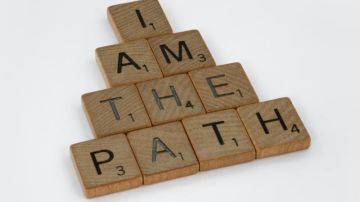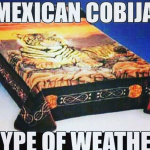Decolonizing My Mind to Fully Embrace My Queer Indigenous Identity
I spend a lot of time thinking about who I am in the world and I’ll be honest with you, it took a lot to get here

Photo: Pexels/Brett Jordan
I spend a lot of time thinking about who I am in the world and I’ll be honest with you, it took a lot to get here. For the longest time, I thought if I properly assimilated I would just be accepted. I would then be able to focus on working hard and making my way in the world. Life determined that was a lie. I started my journey of acceptance hesitantly in college when I took a Mexican-American history class and started recognizing that I was never taught anything about the people that look like me even though our history is so intertwined in the American experience.
I began with embracing my Mexican heritage after so many years of wanting to hide behind a pseudo-Spanish experience. Why? Because for so long the media has taught us that being anything “other” doesn’t have value. Look at all the telenovelas or the American media, Latinas always have a certain look that’s perpetuated the stereotype. In novelas they’re as light as possible, tall and thin, basically as close to European as possible. In American media they’re portrayed as exotic, over-sexualized, and just tan enough to show they’re Latina but not too much because who wants to see a dark-skinned Latina? So being a young and impressionable child, I thought the only way to be Latina was to be as European as I could be. Making me suppress my Mexican identity and reach for an identity I didn’t know — Spain. While I understand that due to colonization I technically have Spanish blood in me, it’s something I wanted to be so I could have the possibility of being accepted into mainstream society not because it’s how I identify. It was only until I took time to actually learn my history that I started healing but my relationship with my identity didn’t end there.
I read more, listened to prominent Mexican voices, and I started to empower myself by understanding and embracing my own identity but it still felt like something was missing. I asked my family questions and got different answers that in the end sounded like “we left that behind,” “you’re American now, act like it.” Until the pandemic hit and we were faced with our own mortality did I realize that it wouldn’t matter how much history I learned or read in books if I didn’t learn about my family. So I began asking my mother questions and she told me that her family came from the Wixárika (also known as Huichol), the indigenous peoples of Jalisco, Mexico. Like many Mexicans I assumed I was just Aztec as that is the most commonly referred to indigenous group. I knew then that it’s the beginning of a long deep dive into my own family history and I’ll actually have to spend time in Mexico talking to more people about it and diving more into my own legacy but after fighting so much for an answer this is beginning to feel like home. I started diving into Wixárika culture and the first thing I found was the creation story of Takutzi Nakawe, “The Journey of Grandmother Rain,” in both Spanish and Wixárika. I can’t explain the feeling but I started crying for all these years I’d spent trying to be someone I’m not. I’d fought to be someone that would be accepted by society when all I needed was to be accepted by myself.
I got robbed of culture, language, and legacy in the name of colonialism and assimilation. After all this time I spent fighting with trying to be more Western I then completely abandoned it. I became powerful in knowing I am my ancestors’ wildest dreams and with that knowledge came decolonization. I learned that before colonization things like being queer were not seen as bad. Everyone had a place in society and some were held in high regard. I began with acknowledging my queerness, something I had always known but never vocalized. I’ve reached an area in my life when I’m beginning to wonder what my gender is and what it means to be a woman. I questioned things like if the construct of being a mujer is mine or was brought over through colonization.
So following so much time spent asking questions, this past year has been one full of answers. A year of confidence and pride in my journey and finally feeling empowered enough to continue my personal discoveries. Learning my language and more about my culture is next and eventually going to visit my homeland. I’ve also started to invest in my community by supporting organizations that work with the Wixárika and financially supporting them whenever possible.
This is just the start of a long journey and I couldn’t be happier to be on the right path. There are still many conversations that need to happen, and I’ve got a language I need to learn and more people within my community to connect to. I’ll never have the lived experience of my people and I’ll always be missing that but for once I have an answer. During the pandemic I, like so many others, got on TikTok and found more Indigenous people that helped me reconnect with Native culture and people. We talk about decolonization, language, culture, and food, helping me form a better understanding that’s allowed me to truly come into my own as a queer indigenous woman. I’ve come along way from who I was as a child, craving to join the table of mainstream society to now being perfectly happy at my own table where I don’t have to be anything but myself. I am with people that I love and embracing my culture and finding value in something so many people taught me wasn’t worthy. My advice to anyone on similar path is to go on this journey, it won’t be easy and it takes hard work but it’s so worth it.

















